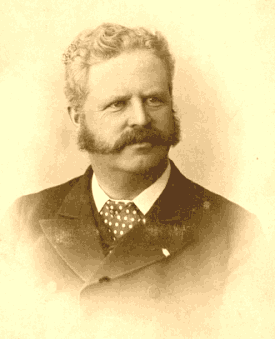Toronto the Good
It’s been sad to hear about the violence in Toronto recently. More than ever we’re hearing about Toronto’s nickname – Toronto the Good – and people are asking if it still applies.
So I thought I’d take a few minutes to blog about what I consider to be some brighter moments in Toronto’s history – and how it got this nickname in the first place.
Toronto had a good start, actually. It was incorporated as the City of Toronto in 1834 – the same year that slavery was officially banned in what was then known as Upper Canada. It became one of the havens for escaped slaves.
But Toronto grew to have a reputation that wasn’t so good – perhaps not uncommon for a quickly growing city of that time. Poverty, abuse, poor sanitation, corruption – by the mid-to-late 1800s Toronto was plagued by many social problems.
That brings us to a man named William Holmes Howland. Howland was born to a prosperous family. As a young adult, he was quickly rising in society as a successful business man, doing unusually well for one so young.
But in 1876 he read a wall plaque with a verse from Isaiah – Fear not: for I have redeemed thee … thou art mine. (Isa 43:1) He was unusually moved by the verse.
At the time he was abroad in England. When he returned to Toronto, he found a revival in progress, led by the controversial Anglican preacher William Rainsford. Howland was a nominal Anglican, but under Rainsford he turned to a more vibrant faith in Jesus Christ.
Howland began to channel his considerable energy into helping the poor. He was involved in a huge number of charitable works, and was particularly interested in helping children. He founded missions, such as the interdenominational Toronto Mission Union.
 |
In 1885, Howland ran for mayor of Toronto. The odds were against him. But a recent change of law allowed women to vote – and political power suddenly was shifting.
His campaign was unusual – it used a slogan which would become a motto for Toronto for many years to come – Toronto the Good.
Howland urged voters,"Let us keep the city, a God-fearing city, and I would rather see it thus than the greatest and richest city in the continent."
To the shock of the "old guard", William Howland easily won.
Howland set up his office with an imposing 12 foot banner, which read: Except the Lord keep the city, the watchman waketh but in vain. (Psa 127:1)
Howland went on to help Toronto earn the name Toronto the Good. He began to enforce rules related to public health and sanitation (in those days the garbage was rarely picked up, to name one major problem!). He worked for the cleanup of factories. The Don River was cleaned up. He worked to improve the lives of the working class. He worked for justice in politics and business.
A special police squad was appointed to combat cruelty to animals, prostitution, abuse, gambling, unlicensed drinking, and "Sabbath breaking".
Howland was re-elected in 1887, again amidst vicious opposition – but he won by even more votes.
In 1888 he did not run for mayor again. He was plagued with financial problems himself, and so he returned to private life. He went back to his involvement in charity work, and was involved in the Christian Alliance (later the Christian and Missionary Alliance). Actually, he was its president in Canada until his death – in spite of the fact that he remained an Anglican – something that was allowed in the early days of the C&MA.
William Howland died in 1893 of pneumonia. Upon his death, one person wrote that he chose the more lowly, and more Christ-like place of feeding the hungry, visiting the sick, going amongst the hospitals and prisons, and following in the very steps of the Lord himself.
So that’s how Toronto got its nickname, Toronto the Good.
Learn more about William Howland online in
CAN ANYTHING GOOD COME OUT OF TORONTO? and offline in the book Canada: Portraits of Faith.
